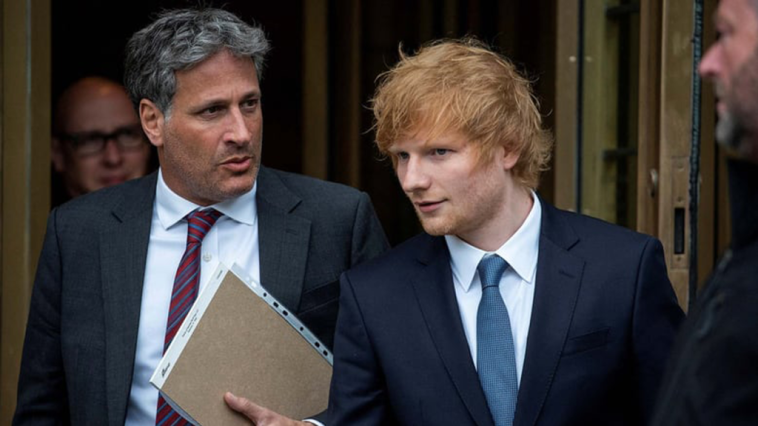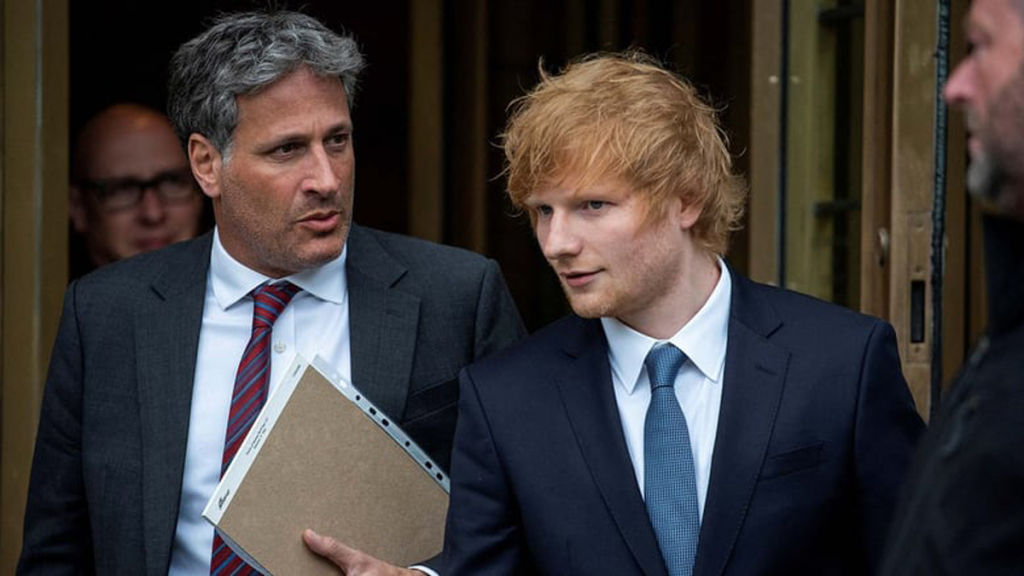Ed Sheeran has won a closely watched copyright lawsuit against the heirs of Ed Townsend, the songwriter of Marvin Gaye’s classic 1973 song “Let’s Get It On.” A jury in Manhattan federal court ruled that Sheeran’s hit song “Thinking Out Loud” did not unlawfully copy from Gaye’s song. The plaintiffs had argued that Sheeran had infringed their copyright interest in the Gaye song by copying its “heart,” including its melody, harmony, and rhythm. Sheeran’s attorneys, however, contended that any similarities between the two songs involved basic musical “building blocks” that cannot be copyrighted.

The jury’s decision was greeted with relief by Sheeran, who hugged his attorneys in the courtroom after the verdict was read. Sheeran had testified during the trial, denying the copyright infringement claims and describing them as “insulting.” He told the jury that he found it demeaning to have someone “diminish” his whole life’s work as a performer and songwriter.
The plaintiffs had asked for a share of the profits from “Thinking Out Loud,” but the jury ruled in Sheeran’s favor. The heirs said in a court filing that they had received 22% of the writer’s share of Gaye’s song from Townsend.
The decision is a significant victory for Sheeran, who has faced other copyright lawsuits in the past. Last year, he won a trial in London in a separate copyright case over his hit song “Shape of You.” However, two similar lawsuits are still pending against him in Manhattan, brought by David Pullman’s Structured Asset Sales LLC, which also owns copyright interests in the Gaye song.
The Gaye family won a landmark victory in 2015 when a jury in Los Angeles agreed that the Robin Thicke and Pharrell Williams song “Blurred Lines” had copied Gaye’s “Got to Give It Up.” The ruling set a precedent for copyright cases involving musical compositions, as it expanded the scope of copyright infringement to include the “feel” and “groove” of a song, as well as its melody and lyrics.
In the Sheeran case, the plaintiffs had argued that Sheeran had effectively confessed to ripping off Gaye’s song when he performed it live in concert as a medley with “Thinking Out Loud.” However, Sheeran testified that singers frequently perform such “mash ups” and that he had on other occasions combined his song with Van Morrison’s “Crazy Love” and Dolly Parton’s “I Will Always Love You.”
The case highlights the complex and often murky legal issues surrounding copyright law in the music industry. While copyright law is intended to protect original works of authorship, it can be difficult to determine when a particular piece of music has crossed the line from inspiration to imitation. As the music industry continues to evolve and new technologies emerge, copyright law will continue to be a critical issue for artists, songwriters, and the broader music industry.






Comments
Loading…